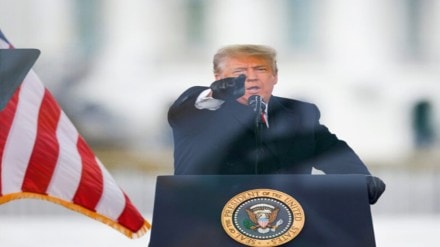The Supreme Court convened privately to deliberate on President Trump’s directive concerning birthright citizenship and is expected to soon announce its decision on whether to consider Trump’s appeal against lower court rulings that invalidated the citizenship restrictions, reports AP News.
US Citizenship
US citizenship is presently granted to all American-born newborns; however, if President Trump’s executive order on birthright citizenship is enacted, it could impact the eligibility of future newborns in the United States for citizenship.
President Trump’s directive concerning birthright citizenship states that children born to parents in the U.S. illegally or temporarily are not American citizens.
Lower courts have ruled against the executive order as unconstitutional, despite a recent Supreme Court decision restricting judges from issuing nationwide injunctions.
Birthright Citizenship
Birthright citizenship grants automatic American citizenship to anyone born in the United States, including children of undocumented mothers, as established by the 14th Amendment after the Civil War.
President Trump’s executive order restricts automatic birthright citizenship to children with at least one parent who is a US citizen or lawful permanent resident, excluding those with illegally present or temporary parents, including H-1B and F-1 visa holders.
If the executive order takes effect, a birth certificate indicating a U.S. place of birth will no longer suffice as proof of U.S. citizenship for individuals born after that date. The SSA will require confirmation that at least one parent is a U.S. citizen or holds an eligible immigration status at the time of birth. If a parent claims Lawful Permanent Residency, acceptable evidence includes a Social Security Number (SSN) record showing that they are a lawful permanent resident.
